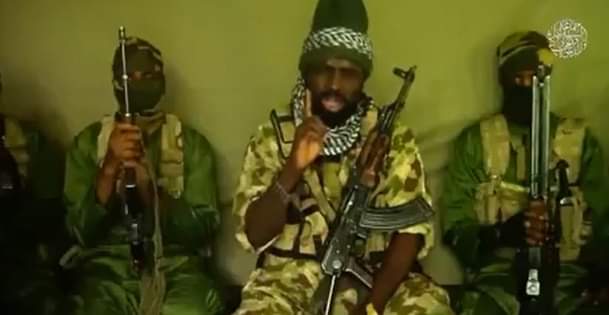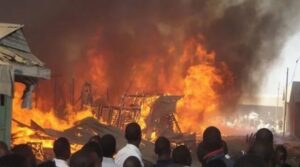
The defence headquarters (DHQ) says Boko Haram killed 81 people in Borno state as punishment for revealing their locations to the military.
Speaking during a Channels TV programme on Friday evening, John Enenche, defence spokesman, identified the lack of intelligence as the major challenge in the fight against insecurity in the north.
TheCable had reported how Boko Haram insurgents attacked Faduma Kolomdi village in Gubio local government area of Borno, killing many residents after posing as preachers.
One of those who survived the incident had recalled: “They gathered us and said they wanted to deliver religious sermon to us. They asked us to submit whatever arm we had … suddenly, they started shooting at will. Even children and women were not spared, many were shot at close range.”
During the TV programme monitored by TheCable, Enenche said the remote cause of the attack, and another which occurred in Katsina, was that the residents in the areas had informed the military about the location of the attackers.
He said: “A lot of people didn’t know that what we saw a couple of days ago …in Borno and Katsina states where about 81 were killed and about 40 others…. The remote reasons for those actions was that ‘you gave our positions away to the military’ and they used other excuses to pounce on them. And that has been the major challenge.
“If we had the cooperation from the general public particularly from those communities and localities where those terrorists, criminals and bandits operate from in cells and hibernation, we would have long before now completed the degradation.
“The overarching strategy was to decimate, which we completed as far back as September 2016, and then to dominate the area, after which we occupy. All of them have their legs.
“When they started volunteering information, the rate of success at both fronts increased rapidly. And as the clearance operations were ongoing, both from the ground operations and air strikes, it was based on human intelligence, information.”
Enenche said the Nigerian military has been understudying other security operations across the world and found out that intelligence plays a key role in the successes recorded.
“I particularly studied Pakistan. It took them 25 years, after about 12 years when people started volunteering information. Within two years, they were done with what we are seeing now,” the defence spokesman said.
“I can say that in all honesty, what we have on the ground …if not for the lack of information where they have…. Can you imagine you just pass a place and before you come back, they plant an IED and people are there watching?
“Will you blame it on them or that you don’t have equipment? The answer is purely no. Because if you have the information that these people planted this thing, you have a way of clearing this thing. The major challenge is giving us information.”












